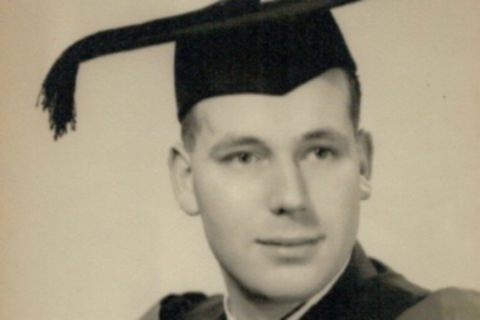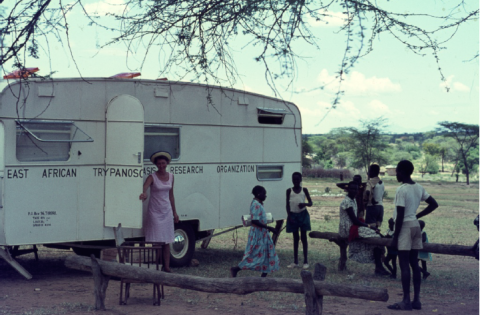Dr Neville Martin Bailey MD, MSc, DPH (1930-2017)

We are sad to announce to death of Dr Neville Martin Bailey, an RSTMH fellow since 1966, whose papers on the treatment and diagnosis of Human Trypanosomiasis featured in several issues of Transactions.
His wife, Sheila Bailey, has kindly provided some words as a tribute to Neville’s life spent caring for others and dedicated to advancing research in public health in the UK and abroad.
“Neville qualified in Manchester in 1954 and first served as House Surgeon at Withington Hospital and then as House Obstetrician at St Mary’s Hospital Manchester before National Service in RAF Fighter Command.
Turning down the opportunity of a permanent RAF Commission he chose to take on a single-handed retirement General Practice vacancy. But after six years of gruelling work, he felt frustrated that there was so little he could do for his patients.
A move to community medicine
He believed the future lay in preventive health and community medicine and he enrolled in the Diploma in Public Health course at the London School of Tropical Medicine and Hygiene in 1963.
During his year-long course he carried out a thorough review of best practice and his DPH thesis, 'Co-operation in Family Care' is still of relevance today. However, his public health career was put on hold when he was headhunted by the Ministry of Overseas Development.
East African Trypanosomiasis

He had earlier taken a BSc in Zoology and he was now invited to go to the East African Trypanosomiasis Research Organisation in Uganda, on a three-year posting. His work is documented in part in his MD thesis 'Observations on the use of Berenyl in the Treatment and Prophylaxis of Human African Trypanosomiasis' and in his MSc thesis 'The Transmission of Mammalian Trypanosomes'.
Bringing to the team his clinical experience, his skills as an epidemiologist, and his lifelong interest in entomology and zoology, Neville was able to take a fresh approach.
There had been an assumption that the disease, which had killed over a million people in one outbreak at the turn of the 20th century, could not spread by direct transmission between people but needed a period in an intermediate host.
Neville felt instinctively that was incorrect and devised an experiment which demonstrated that direct transmission was not only possible but very likely to be the major cause of the recurrent epidemics. He also helped pilot a method of taking finger-tip blood for testing for trypanosomiasis which has since also been used for several other diseases.
Impact of Dr Bailey's work
He then reasoned that the drug Berenil, manufactured by Hoechst for use in cattle, might have a possible role in both treatment and prophylaxis of the human disease. He tried it first on himself, before using it on patients, and proved its effectiveness. Sadly, because the patients who needed it could not afford to pay, the drug was not used.
Only very recently – some 50 years after his trials – has its worth been appreciated, as a report in the Financial Times Weekend Magazine supplement by the FT’s former pharmaceutical correspondent, Andrew Jack highlighted recently.
Following his work in East Africa, Neville became Deputy County Medical Officer in Hampshire and spent some very happy years there working with teams of professionals (and particularly local GPs) to improve the content and delivery of community care. He was then invited to become Chief Administrative Medical Officer to the Powys Area Health Authority.
It was a very happy time and he felt honoured to be appointed an Honorary Lecturer in Community Medicine to the Welsh National School of Medicine and a Member of the Welsh Council of the BMA.
Retirement in the Isle of Man
Then, as the NHS was reorganised again in 1984 and his post disappeared, he took early retirement and came with me to both America and Canada on my Winston Churchill Memorial Fellowship (where I was looking particularly at their support for Community Enterprise).
Shortly after he was offered the appointment of Chief Medical Officer to the Isle of Man Government where he spent a very happy and fulfilled further five years, before at last retiring to look after our couple of acres of woodland garden, where he was planting trees until his death.
Below you can download Dr Bailey's full biography, as well as his PhD thesis.